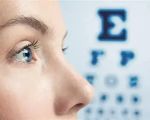- 2-The-Role-of-Trusted-Eye-Doctors-in-Management
- 4-Choosing-the-Right-Eye-Specialist-for-You
- 5-Patient-Stories-and-Professional-Insights
1. Understanding Age-Related Vision Problems and Their Impact
As we age, the risk of developing vision problems such as macular degeneration, glaucoma, cataracts, and diabetic retinopathy increases. These conditions can gradually reduce sight, affecting daily activities and overall quality of life. Recognizing the symptoms early and seeking expert care from trusted eye doctors for managing age-related vision problems is crucial to slowing progression and preserving vision.
1.1 Common Symptoms and Warning Signs
Blurry vision, difficulty reading, halos around lights, and loss of peripheral vision are some signs indicating the need for professional evaluation. Early intervention is key.
2. The Role of Trusted Eye Doctors in Managing Age-Related Vision Issues
Trusted eye doctors specialize in diagnosing, monitoring, and treating age-related eye conditions. Their expertise allows for personalized treatment plans that consider patient history, lifestyle, and severity of disease.
2.1 Comprehensive Eye Exams
Routine eye exams help detect subtle changes in eye health, enabling timely management. Specialists use advanced diagnostic tools to monitor disease progression accurately.
2.2 Collaborative Care Approach
These eye doctors often work alongside other healthcare providers to address underlying health issues, such as diabetes or hypertension, which impact vision health.
3. Common Treatments for Age-Related Eye Conditions
Treatment options vary depending on the condition and stage but often include:
3.1 Medication and Eye Drops
For glaucoma, medications help reduce intraocular pressure to prevent nerve damage.
3.2 Laser Therapy and Surgical Procedures
Laser treatments can slow disease progression in macular degeneration or repair retinal damage, while cataract surgery restores clear vision.
3.3 Lifestyle and Dietary Recommendations
Doctors often advise on nutrition, supplements, and habits that support eye health and complement medical treatments.
4. Choosing the Right Eye Specialist for Managing Age-Related Vision Problems
Selecting a trusted eye doctor involves considering qualifications, experience, and patient rapport. Look for specialists who demonstrate:
4.1 Expertise in Geriatric Eye Care
Doctors familiar with age-related vision issues can provide more precise diagnoses and tailored treatment plans.
4.2 Patient-Centered Communication
Clear explanations and empathy build trust, making it easier for patients to adhere to care plans.
4.3 Access to Advanced Technology
Clinics equipped with the latest diagnostic and treatment tools offer the best care outcomes.
5. Patient Stories and Professional Insights on Vision Management
One patient shared how consulting a trusted eye doctor early in her macular degeneration diagnosis preserved her vision and independence longer than expected. The personalized care and attentive follow-ups made a significant difference.
Professionals stress that managing age-related vision problems is a lifelong journey requiring regular monitoring and adaptation. Trusted eye doctors provide the support and expertise needed to navigate these challenges effectively.
For finding experienced specialists and support services, Eye Docs offers trusted recommendations and resources to help you maintain the best possible vision at every age.








